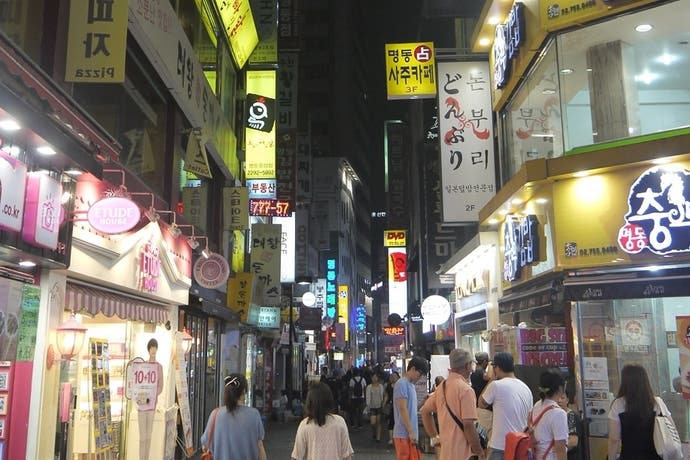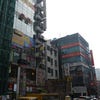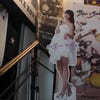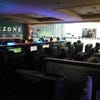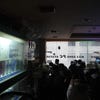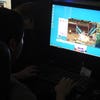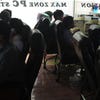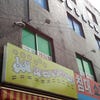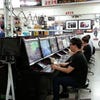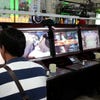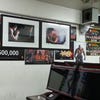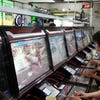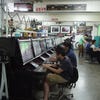Seoul calibre: Inside Korea's gaming culture
Oppa gaming style.
Korean summers are a torrid affair. The wide, New York-style avenue leading downhill from Yeoksam to Gangnam is fuzzy under a blue haze of swirling water vapour. Streets bake, buildings drip, people are threatened with evaporation.
Wedged uncomfortably between several former invaders and a would-be one, only Christianity has been successful in conquering South Korean territory, residents declaring their Catholic and Protestant ambitions by tarring the city with neon crosses. An impermeable commercial fun spot, central Seoul is a vibrant metropolis of sound, colour and shopping, the Myeung-Dong and Hongik University districts attracting girls to shoes like electromagnets to cobalt alloys.
In Gangnam, both consumer paradise and hedonistic trough, the art of spending and acquisition is accompanied by rich pretension. Sexy ladies? Oh yes, disproportionately so - although much of it comes with a receipt, and don't let anyone tell you otherwise.
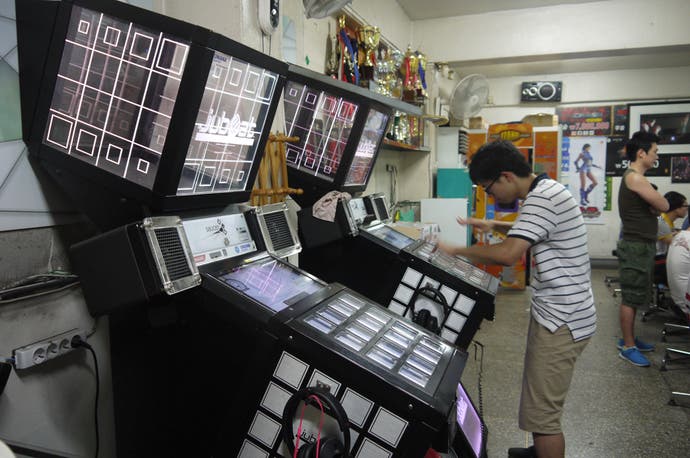
Science-fiction stories where people freely sculpt their appearances usually end in a venomous twist, yet Seoul strides obliviously toward the reality. It's commonly accepted that in areas where people go out just to be seen, most boys n' girls have had some form of plastic surgery, even if it's undetectable to the layman.
"I came here for fat grafting and some injections to define my chin. They only last for six months or so," Maggie, who travelled from Guangzhou, China, tells me. "I didn't hire a translator, I just used an app on my phone to communicate with the doctors."
"It's well-known that Korea is the place to come to for cosmetic surgery," she continues. "There are hundreds of clinics and everyone treats the idea as normal. They do the best work here, so lots of girls visit from other parts of Asia."
Gangnam, not too far from surgery central Apgujeong, signifies both the positives and negatives of aesthetic enhancement.
People have come closer to Korean ideals of beauty, but sacrificed aspects of their individuality for fashionable off-the-shelf nose and chin implants. Who's got the hottest girlfriend is becoming less relevant: who's got a girlfriend that doesn't resemble everyone else's is the more burning question.
When asked why she thinks plastic surgery has become such a phenomenon here, Maggie replies, "Every girl wants to look good. I wouldn't go as far as some of the Korean girls - I think they do too much. They're beautiful, but very similar-looking. It's a bit strange. I want to keep my personality, I just want a small improvement."
* * *
Korean culture is now café culture, an urban layer of coffee establishments trading in ambient cavities of westernism.
Not quite as ubiquitous, but still extremely common, are PC Bangs: LAN gaming hangouts where 1000 Won nets you an hour of multiplayer catharsis. In Gangnam's Maxzone, overhead fans rotate at Apocalypse Now speed, slicing cigarette smoke as it snakes through the blades. Korea's own NCSoft, whose European base is but a stone's throw from the Eurogamer offices, is currently going strong with its latest MMO, Blade & Soul.
"It's relaxing," says Min-Su, sipping a Milkis purchased from the wall-mounted vending machine. "And dangerous," he adds. "It's easy to lose track of time playing these games, especially when you have so much invested in them. I'm always thinking about achieving the next level or taking on a quick quest to try to obtain a weapon, and the next thing I know I've been here for half the day."
The PC Bang is a portal where, like Bruce stepping through a secret door in Wayne Manor, logging into your account transforms you into a formidable Assassin or fearsome Summoner. But under the gloss is a lethal business model, a set of shrewd mechanics eternally dangling the next level-up in your face. Indeed, players often become so devoted to their second lives that they tender their actual lives and die at the monitor.
Min-Su laughs, "I don't think that's very common. I've seen some guys here who look like they're almost dead though. My longest session was probably around eight hours, but I can't fight hunger - I know when I have to eat, and instant ramen [sold at the counter] sucks."
With 24-hour cable TV channels dedicated to StarCraft competitions, console gaming seems destined to remain a minority sport here. Although the Nintendo DS had a good spell with its Girls Generation marketing drive, today Seoul's billboards are occupied by smartphone RPGs. Only the Yongsan Electronics Mall is clinging onto what we consider current, and Koreans consider old hat - but stories of its treasures are exaggerated. Everything to do with a ban on Japanese goods until 1999, Yongsan's well-hidden basement is fine for a current-gen fix but the quality of its retro stock is underwhelming.
After discovering the COEX mall's Game Champ had permanently closed its doors, I ventured out in an oppressive heat to Daerim's fabled Green Arcade. Situated on the second floor of an unassuming building with a special barbershop in the basement, it's an austere battleground dedicated solely to Tekken.
Lee Sang-Kwon, who had travelled from Busan to spend the afternoon, kicked back with a soft drink and a cigarette to talk about how Korea does it gaming style.
"Everyone in Green Arcade knows each other. It's a social place. People like to sit with friends and compete," says Lee. "Players prefer to come here than play at home, especially where Tekken is concerned. It's a very fast game, so the lag with online play is not considered acceptable for practicing. That's the reason I don't own a PlayStation."
"We have a lot of cash prize Tekken competitions streamed on the net via nicegame.tv, and Korea's famous players come to Green Arcade to practice - and quite a few foreigners too. You can see trophies displayed on the wall for recent victories."
Regarding the shape of gaming, Lee explains, "PC and smartphones are definitely the most popular formats, because they're low cost and easy to access. PC rooms only cost a dollar an hour, so everyone can join in, and you can find them everywhere. Personally I don't like PC Gaming, people use too many cheats, it's annoying," he laughs. "Broadband is very fast here, and people can easily play PC games at home, but PC rooms are successful because of the social aspect."
When quizzed about Korea's spartan console scene, Lee explains, "People started to lose interest in consoles about ten years ago, all because of StarCraft. That game changed everything. It's responsible for the success of PC rooms and the huge popularity of smartphone RPG's. You could say in Korea, StarCraft killed the console... and the arcade too."
* * *
Remnants of old Seoul are pocketed and diminishing. Creep away from the city heat to Sangwangsimni's backstreets and there's a throng of late-night outdoor venues, fervent drinking, and all the barbeque you can eat. Namsangol Hanok Village by Chungmuro station, with its classical theatre and school, is an interesting but limited diversion; while Insa-Dong, with its tourist tailored wares and convenient photographic prospects, smacks of fabrication. Seoul tower, the number one target for camera-wielding sightseers, offers a stunning 360-degree lookout over a night-time capital ablaze with light - but few of these attractions speak about the country's cultural heart.
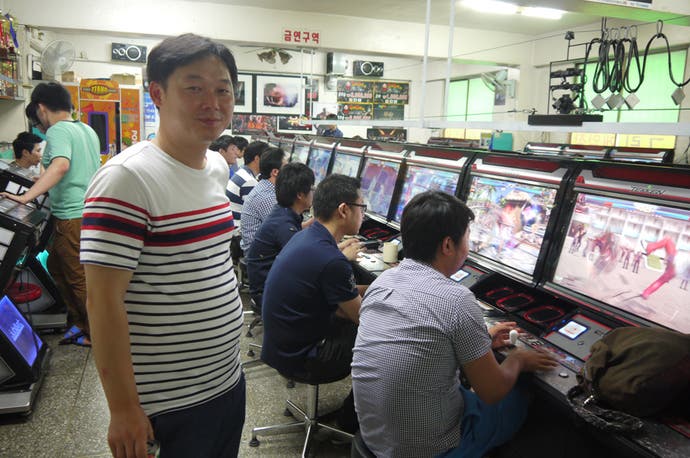
Only the war museum offers tangibility. In a yard littered with lifeless tanks, bombers and warships, shadow-stricken beneath a setting sun, one can digest South Korea's conflicts, invasions and oppression, and understand why it drives so industriously toward new horizons.
Seoul flourishes with modernity; its youthful definitions shaped by androgynous boy bands, equestrian dance moves, and fried chicken. At the same time, it's a country in the throes of an identity crisis, ploughed with so much foreign investment that its traditional expressions have been buried by a corporate tsunami. From the ashes of the Korea that once was, a new personality is emerging, a set of contemporary characteristics bound inextricably to technology, materialism and western ideologies. Only Kimchi is everlasting.
